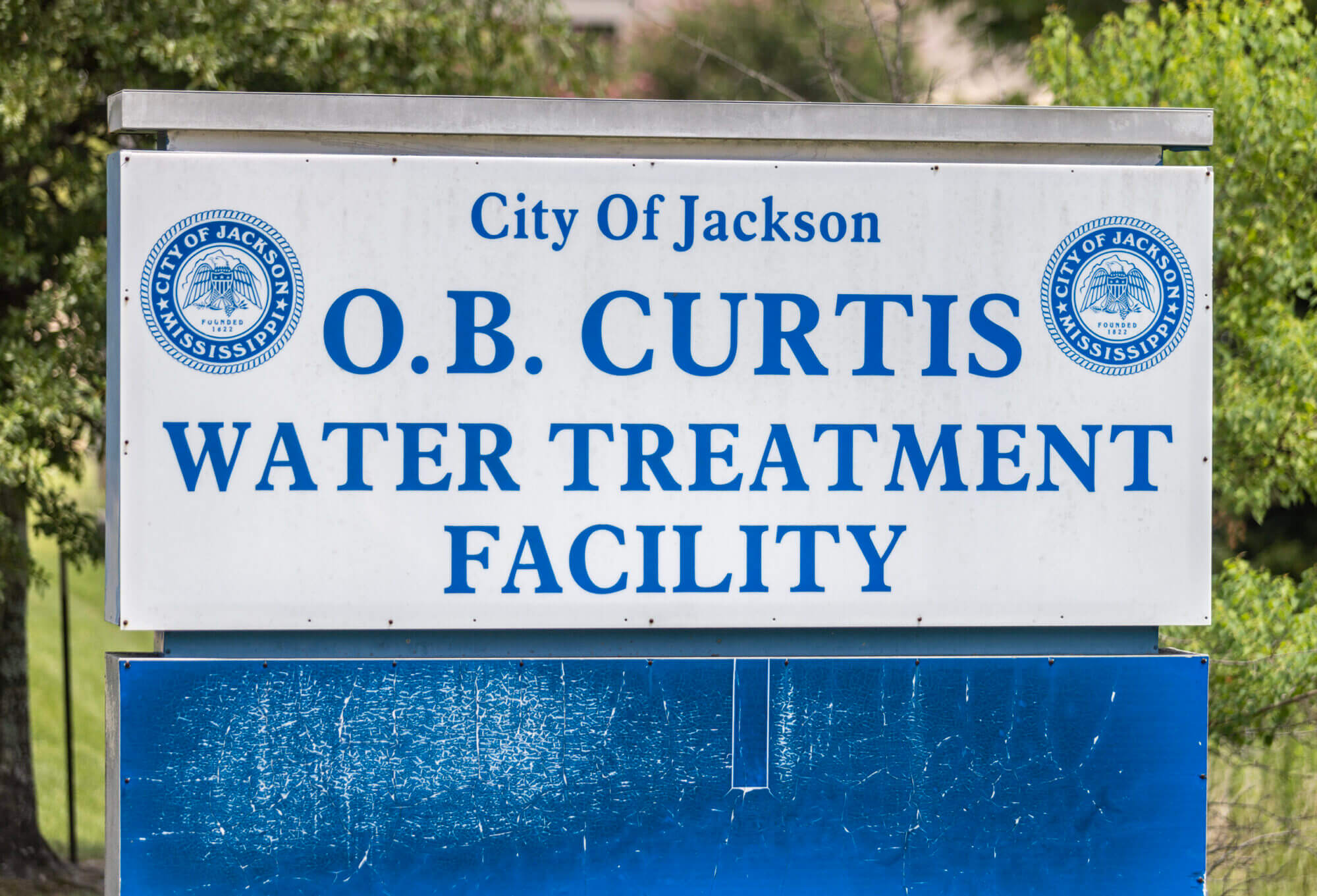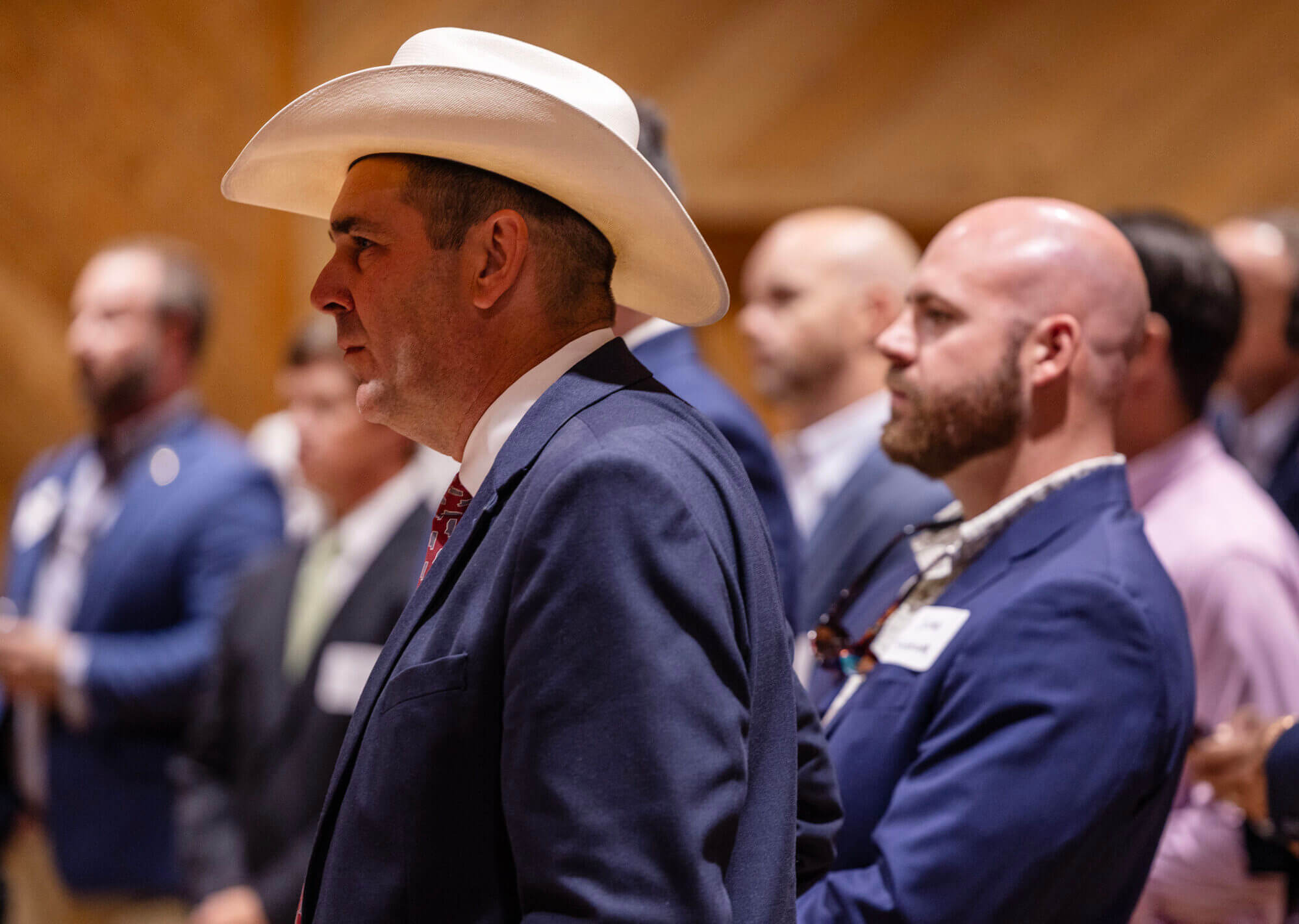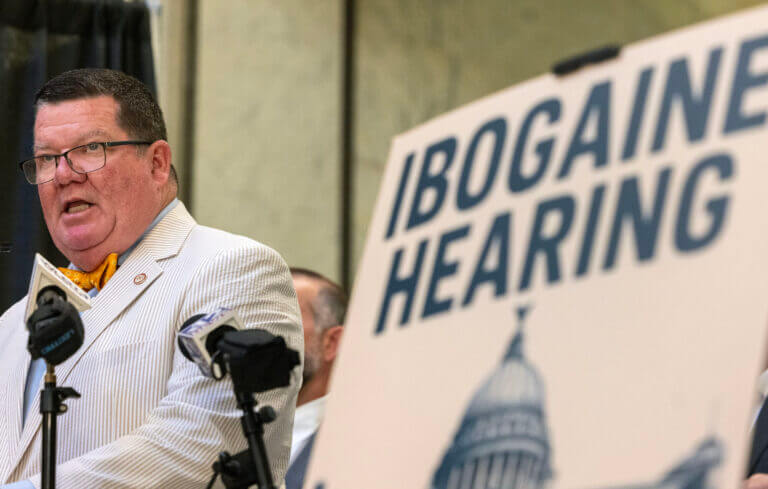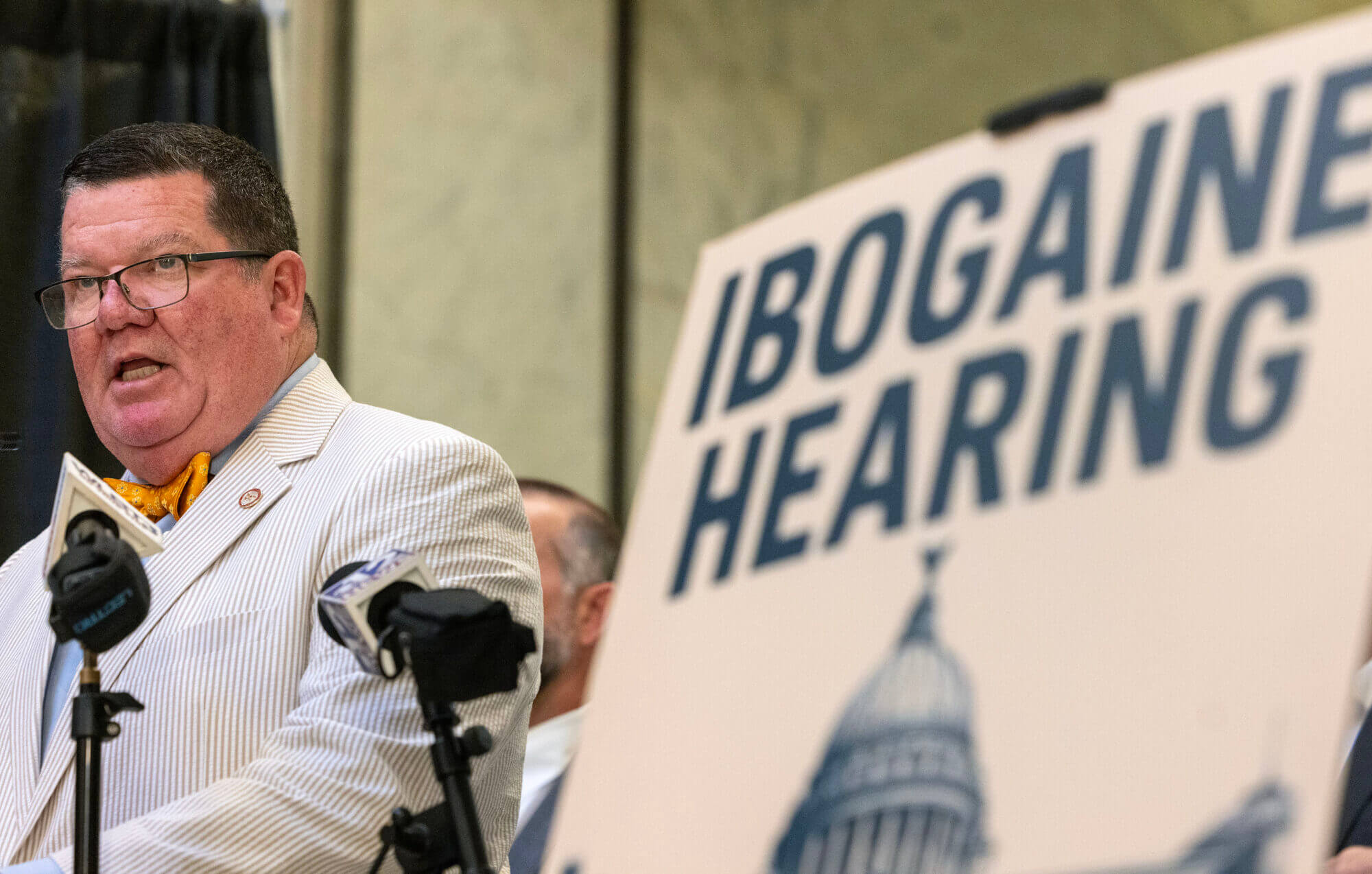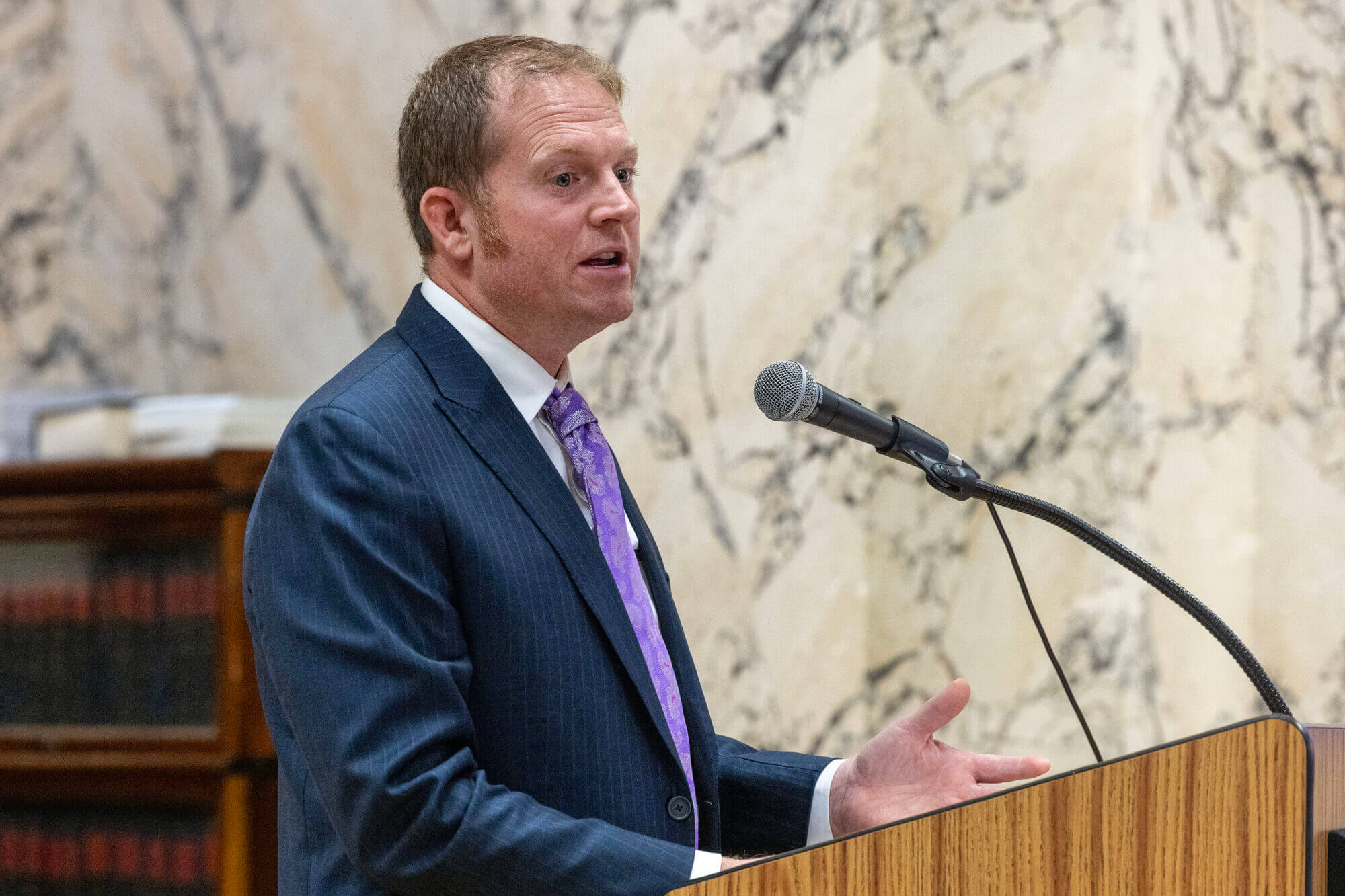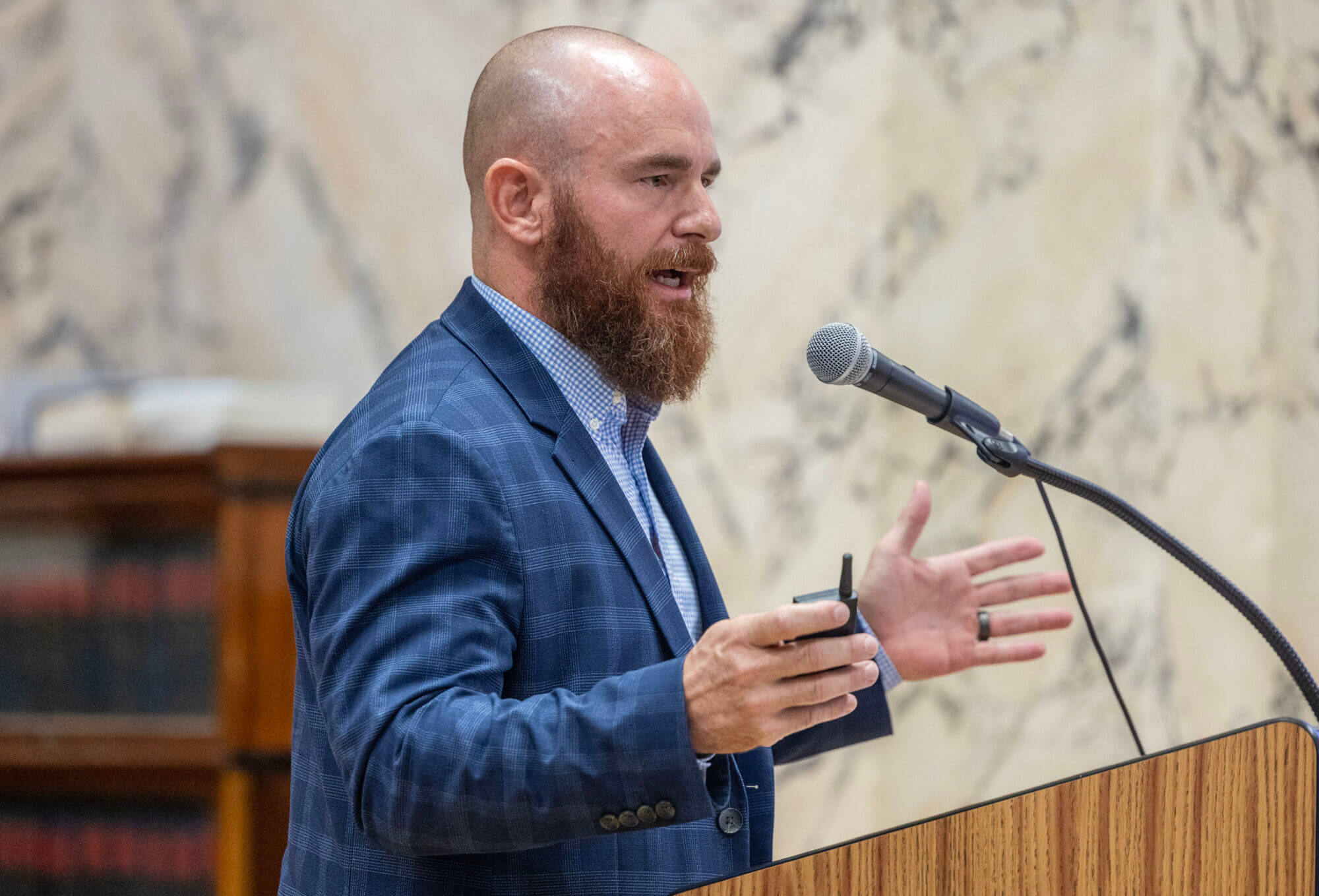
Higher education — central to the public profiles of billionaire businessman Tommy Duff and State Auditor Shad White, two Republicans eyeing Mississippi’s governorship in 2027 — has already become a point of division between them.
Duff, in a recent interview, appeared to take a shot at White, saying politicians should focus on the jobs they currently hold, not future ambitions for higher office. White, in response, said Duff, while on the college board, helped implement diversity, equity and inclusion programs anathema to conservative Republican policy.
In Mississippi, issues such as diversity, equity and inclusion and other culture war battles roiling higher education have become a wedge issue in intraparty political spats, a legal fight unfolding in federal court and an ongoing effort to keep college students from leaving the state in droves.
Duff is considering a run for governor and has made higher education a top focus of his recent public appearances. He cites his budget stewardship during his stint on the state Institutions of Higher Learning Board from May 2015 to May 2024.
White, both through reports issued by his office and his own bully pulpit, has led a high-profile campaign for conservative reform of Mississippi’s higher education system.
Duff has hinted at the broad outlines of what could become a gubernatorial campaign agenda, but he has largely done so without offering specific policy proposals, citing the nearly 27 months remaining until Election Day in 2027. The gubernatorial race, Duff added in an interview with Mississippi Today, should not distract current state leaders interested in running from attending to the demands of their offices.
“I kind of wish all these people that want to be running that maybe have government jobs and responsibilities ought to tend to the ones they have,” Duff said. He didn’t name White, but the comment appeared to be a shot at him.
In response to Duff’s statement, White criticized Duff’s track record on the IHL Board.
“When Tommy Duff was on the board running our universities, he supported the creation of the DEI office at Ole Miss, on his watch the University Medical Center started an ‘LGBTQ Clinic’ which gave puberty blockers to transgender minors, and he voted to require the COVID shot for university employees before they were allowed to come back to work, so I sort of wish he would have done a better job when he was in his government position,” White said. “I’d have less to clean up.”
In a statement, Jordan Russell, a spokesperson for Duff, called White’s statement “blatantly false” but declined to comment further.
John Sewell, director of communications for the IHL, said the University of Mississippi’s Division of Diversity and Community Engagement was requested by the university and approved by the Board in April 2017
The University of Mississippi Medical Center’s now dissolved “LGBTQ clinic” was created in 2019, and an IHL Board vote was not required for its creation, Sewell said.
On the COVID-19 vaccine mandate, Sewell said the board voted against a systemwide mandate in August of 2021, but was then prompted to change course in response to federal regulations.
“The next month, President Biden issued an order demanding that federal contractors and subcontractors be vaccinated. To avoid losing federal research dollars, the Board voted in October 2021 that individuals considered federal contractors and subcontractors should comply with the executive order,” Sewell said.
Neither Duff nor White has formally entered the race for governor, but they have both said they are considering a run. Their experience, along with Mississippi’s specific economic challenges, suggests higher education could play a major role in shaping state politics for years to come.
Duff focuses on fiscal policies
In what Duff’s advisers characterized as the first political speech of his life earlier this month, he reminded the crowd of his tenure on the IHL Board.
Duff anchored his comments about his experience on the IHL Board in cost savings – a message that aligns with the Trump administration’s elevation of “government efficiency” as a leading political priority.
Duff said that he oversaw the hiring of a firm to coordinate health insurance policies across the nine institutions in the IHL system, and that resulted in millions in savings. He also said he helped revamp the interest payments universities were paying on bond projects, resulting in about $100 million in savings.
He appeared at a Mississippi Today event with business leaders about “brain drain” and highlighted the need to keep more Mississippi-educated college students in the state by attracting more private-sector jobs. And in an earlier interview with Mississippi Today, he noted that he and his brother are also major supporters of higher education, having donated about $50 million to Mississippi universities.
Duff also said he supports adding “civic responsibilities” to curricula at Mississippi universities. That reflects ideological currents sweeping the country, with several Republican-led states enacting laws requiring students to take civics-focused courses — often with an emphasis on Western civilization — while scaling back identity-focused content such as race or gender studies.
“I don’t think that’s taught as much anymore. What it means to be an American, a Mississippian. What does it mean to be a future member of society, a citizen? The importance of voting,” Duff said. “Those type of things need to be added into college curricula. Learning our constitution, that type of stuff that makes you more well-rounded and makes you a better student and adult.”
White has called for Mississippi to change how it funds higher education by stripping public money from degree programs that don’t align with the state’s labor force needs. White pitched that policy as his own solution to brain drain. The idea is that outmigration could be blunted by increasing funding for degree programs with higher earning potential right after graduating, such as in engineering or business management, according to a 2023 report issued by White’s office.
White was the earliest and most vocal state leader to come out in favor of banning diversity, equity and inclusion programs in schools.
In a statement, Jacob Walters, a spokesperson for White, said the auditor wants to ensure DEI departments are not recreated again under a different name. White also wants to use the money that previously went to DEI offices to increase campus security.
Walters also provided other higher education proposals White supports, many of which align with the Trump administration’s push to shape teaching around cultural issues and eliminate “useless woke programs.”
“Taxpayer money should not be used to fund Gender Studies programs that feature ‘queer studies’ coursework,” Walters wrote. “This can be found right now at our universities. Instead, taxpayer money should fund degree programs that prepare students for real jobs and don’t saddle them with debt they cannot repay.”
White wants to require that all universities teach “the scientific reality that there are only two sexes,” Walters wrote.
He also supports putting a surcharge on out-of-state students who attend Mississippi universities. The revenue would be used to fund a scholarship for any graduate with good grades in a high-need field who agrees to work in Mississippi for the first four years after graduation.
Duff and White are seen as likely candidates for governor in 2027, but Agriculture Commissioner Andy Gipson is the only notable candidate who has officially announced he’s running.
Gipson also supports eliminating the ability of Mississippi universities to set goals around “diversity outcomes,” a push that became easier after Trump’s reelection, he told Mississippi Today.
“Like most Mississippians, I’ve always supported hiring and recruitment based on individual merit and qualifications, so I was glad to see IHL move this direction beginning in November 2024,” Gipson said.
Going forward, Gipson said Mississippi universities must adapt to a declining student population, which some call an “enrollment cliff.” Mississippi can do that by highlighting its “quality of life and college experience and culture that other parts of the country can’t offer,” he added.
Preparing students with skills in data and artificial intelligence – industries already disrupting the American economy – would also be at the top of the two-term agriculture commissioner’s higher education agenda as governor, he said.
There are just under 80,000 students enrolled at Mississippi’s eight public universities and the University of Mississippi Medical Center, many of whom returned to classes this month. They did so as a legal battle heats up that could fundamentally reshape the composition of student bodies and the dictate which subjects they are taught.
Legal questions loom over DEI
After President Trump made banning DEI programs de rigueur for Republican state legislatures, Mississippi lawmakers introduced legislation for two consecutive legislative sessions. They questioned university officials on their implementation of diversity initiatives and finally succeeded in passing a statewide ban in 2025.
Last week, a federal judge blocked a Mississippi law that bans diversity, equity and inclusion programs in Mississippi public schools from going into effect.
As Mississippi geared up to shutter DEI from its schools, the Trump administration unleashed a torrent of executive actions aimed at universities. The federal government launched civil rights investigations into elite universities and froze billions in federal research money
The Mississippi ruling prevents officials from enforcing the law. Attorneys for the plaintiffs and the state defendants will now move to discovery, where they collect evidence before a bench trial.
The litigation could drag on past the 2026 legislative session, forcing Republican lawmakers to keep pushing to enact a policy they had already spent over a year drafting and debating.









